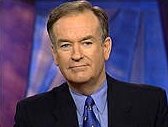


Interview with Jon Entine: African-Americans in Sports
January 18, 2000
BILL O'REILLY, HOST: I'm Bill O'Reilly.
In the "Personal Story" segment tonight, why do blacks dominate the American sporting scene?
African-Americans make up 66 percent of the National Football League, 77 percent of the National Basketball Association, and 40 percent of Major League Baseball. So the stats speak for themselves.
With us now is Jon Entine, the author of Taboo: Why Black Athletes Dominate Sports and Why We're Afraid to Talk About It.
Who's afraid to talk about it, Jon?
JON ENTINE , AUTHOR, TABOO: WHY BLACK ATHLETES DOMINATE SPORTS AND WHY WE'RE AFRAID TO TALK ABOUT IT: We're all afraid to talk about it, I think. When the issue of race comes up, the cerebral cortex just shuts down, and this is particularly explosive because people think that when you say someone is physically gifted that you're suggesting perhaps that maybe they're mentally deficient in some way.
O'REILLY: I don't know why anybody would -- would even think that. That's so absurd. I mean, I know Jimmy the Greek got in trouble, got fired, his career down the drain because he said some -- I thought they were pretty insensitive comments about why...
ENTINE : Well, he was wrong.
O'REILLY: Well, he was always wrong in everything he did, all right, but he was trying to describe why African-Americans have more athletic prowess, and he had this hair-brained theory. But let's -- let's take it one step at a time here. There's no question that blacks are dominating professional sports in this country. Why is that?
ENTINE : No question. Well, people in -- in the United States -- African-Americans are descended from West African blacks. Different populations around the world, whether it's West Africans, East Africans, Asians, Eurasians -- everybody developed, evolved differently, have different body types, have a different physiology. People who evolved in West Africa and ultimately came to the United States, African-Americans, are gifted in fast running and in jumping, and those are the skills that are in the NBA, that...
O'REILLY: So are their bodies different?
ENTINE : Absolutely.
O'REILLY: All right.
ENTINE : Different body types...
O'REILLY: Longer -- longer leg. More powerful muscles. Something like that?
ENTINE : And people recognize this very well when you look at Asians who are smaller and -- and are great at something like diving and gymnastics. Eurasians -- whites -- are great at wrestling and weight lifting because they have good upper body strength.
O'REILLY: And all of this was in evolution based upon the climate that they lived in and the socioeconomic conditions of...
ENTINE : Well, not -- it's not socioeconomic so much, but they -- they lived in certain geographical areas. They evolved over tens of thousands of years. You have different body types to develop.
O'REILLY: Well -- but, look, if you were living in a tropical area where you had to hunt to survive...
ENTINE : Absolutely.
O'REILLY: ... as opposed to living in England where you're sitting on your butt, you know, and you can make money, you know, being a tailor, I mean, obviously, through evolution, you're going to have a more athletic bent in the tropics. Now does anybody object to the fact that you're writing and speaking about this?
ENTINE : Well, scientists don't because this is not controversial scientifically.
O'REILLY: Right. It's pretty much accepted.
ENTINE : It's controversial politically.
O'REILLY: Why? Who -- who -- who...
ENTINE : Well, you know, I had a -- ran a pretty strong gauntlet to just get this book published. It was originally bought by Macmillan. They dropped the book because they went through some consolidation, and the editor got nervous about it. The...
O'REILLY: And what did the editor say to you?
ENTINE : Well, he says, "I am afraid that this -- people will call us and you a racist for this."
O'REILLY: Really?
ENTINE : Yeah. Absolutely.
O'REILLY: Just because you were saying blacks are better at sports than whites?
ENTINE : Just because I was saying that. And what's so interesting about it is I circulated my manuscripts to many, many people. In fact, on a board of advisers, four out of 10 were African-American sociologists, including the editor of "The Journal of the African-American Male." They loved the book, and they felt it was absolutely accurate and sensitive. It didn't matter. People don't want to touch it.
O'REILLY: Now that it's out, have you been attacked? Has anybody attacked you?
ENTINE : Sure. Absolutely.
O'REILLY: Who?
ENTINE : Mostly blacks and -- I say this with quotation marks -- "white liberals," though, you know, here I am a white liberal who wrote this book, but I think absolutely the taboo is the fear of -- almost a patronizing attitude by many people.
O'REILLY: Can you give us one example of an attack on you recently?
ENTINE : Well, I'm on a -- an e-mail mailing list called the North American Society of Sports Sociologists of -- which is about 30 percent African-American, and a lot of them are young African-American scholars, and I have been a called a racist by any number of those professors in...
O'REILLY: In that area.
ENTINE : In that area.
O'REILLY: Just because you are claiming that the...
ENTINE : People who haven't read the book.
O'REILLY: ... evolutionary process has developed -- has come to the fact that blacks are more developed in certain areas and they're better --better runners. Like the Kenyan people -- the guys from Kenya always win in the marathons, right?
ENTINE : And every single running record from the hundred meters to the marathon is held by a black person. No question about it. And, again, some are from East Africa, some are from West Africa, but they each have different body types. We're not talking about black-white so much, again because we have Asians who are good at gymnastics and diving. So each group, so to speak, evolved under different circumstances and have different attributes and, you know, we -- it's not racist to say that Jews -- Ashkenazi Jews get Tay-Sachs disease. Why is it wrong to say that blacks...
O'REILLY: I don't think it's wrong. I'm reading your book here, and I'm saying, "Well, it makes sense." You're not saying anything about a specific individual.
ENTINE : No.
O'REILLY: You're not putting a pejorative on any group. You're actually complimenting people for their athletic prowess.
ENTINE : And -- and -- nor am I not saying -- I'm not saying that environment and culture don't play a role, but genetics set parameters.
O'REILLY: Absolutely -- I was a -- I was an excellent passer of a football, and I played quarterback, but I couldn't run that fast. So I got my head handed to me.
ENTINE : Absolutely.
O'REILLY: If I -- if I had been a little bit faster, I might have been in the NFL complaining about not getting paid enough.
Hey, look, I thought the book was good, John, and we appreciate you coming in. And don't worry about those people. I mean, they're always spouting off about something.
ENTINE : Thanks, Bill.
Copyright 2000 Fox News Network, Inc.